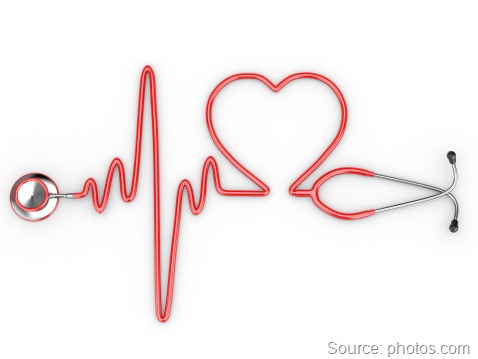Have you ever felt like your heart has skipped a beat? This may have been an ectopic heartbeat.
Ectopic heartbeats are common and can happen to people of any age whether they have heart disease or not. (1)
But what exactly are ectopic heartbeats? What causes them? And are they dangerous?

What are Ectopic heartbeats?
Ectopic heartbeats are irregular heartbeats which cause variations in the normally regular pulse.
The condition refers to both extra heartbeats and skipped heartbeats. (2)
Symptoms of Ectopic heartbeats
Ectopic heartbeats involve the conscious awareness of your own heartbeat. These are also known as palpitations. (3)
There may be a fluttering or pounding feeling in your chest, which may also spread to your throat or neck. (4)
You may feel like your heart has momentarily stopped altogether, or that it has skipped a beat.
Another characteristic symptom of ectopic heartbeats is an occasional feeling of strong forceful beats. (3)
Ectopic beats are commonly felt when you are lying in bed. This is partly because you are often very conscious of your heartbeat in this situation. (5)
Who do Ectopic heartbeats affect?
The condition can happen to people of any age, whether they have an underlying heart condition or not. (1)
It is thought that most people have at least one ectopic beat every day; however, most go unnoticed. (10)
Ectopic heartbeats are also found in babies. If the midwife spots an Ectopic heartbeat of the child during pregnancy, it may be advisable for the mother to cut down on beverages that contain caffeine, such as tea, coffee and cola. (6)
What causes Ectopic heartbeats?
Normally, the heart is sent a signal to beat from the sino atrial node in the top right hand chamber of the heart known as the right atria. (7)
During Ectopic heartbeats, the signal is sent from somewhere else in the heart. This signal can come from either the atria or the ventricles (the upper or lower chambers of the heart) causing the heart to beat earlier than normal within the normal heart cycle. (7, 8)
As a result of the need to have time to send the signal in advance of the normal signal, Ectopic heartbeats tend to occur when the body is relaxing. This is because the heart is beating slower. (7)
Triggers of Ectopic heartbeats
Some people find the following factors trigger Ectopic heartbeats:-
- Alcohol intake
- Caffeine intake
- Stress
- Tiredness
- Cold medicines that contain decongestants (9)
- Anxiety
- Smoking
- Pregnancy
- Undergoing the menopause
- Taking recreational drugs (1)
How are Ectopic heartbeats diagnosed?
In order to diagnose your Ectopic heartbeats a doctor will take your pulse and check for irregularities. They will also ask you to describe your symptoms. (1)
You may be required to have an electrocardiogram (ECG) which is a heart trace, this will confirm the diagnosis.
Due to the infrequent nature of Ectopic heartbeats, you may be required to wear a portable heart monitor for a period of 24 hours. (9)
Are Ectopic heartbeats dangerous?
In short, Ectopic heartbeats are not dangerous if you are generally in good health. (1, 10)
If Ectopic heartbeats are associated with other symptoms of feeling unwell, however, they should be looked into. (5)
Furthermore, if you are aware that you have coronary heart disease, you should also report such changes in your heart rhythm to your doctor. (1)
Treating Ectopic heartbeats
In general, treatment is not required for Ectopic heartbeats unless they are causing unpleasant symptoms. (9) This may be if the Ectopic heartbeats occur very frequently or are very severe. (3)
One way Ectopic heartbeats can be reduced is by working out what is triggering them and trying to reduce the cause. (1)
In inactive people, exercise may help to reduce Ectopic heartbeats. (2)
There are some medical therapies. If the patient is otherwise healthy, however, a doctor may not wish to prescribe these therapies due to the potential risks involved.
These therapies include beta-blockers, such as metoprol or Bisoprolol, or calcium channel blockers, such as verapamil or Diltiazem. (7, 9)
Further Reading
Last Updated: Jun 8, 2023